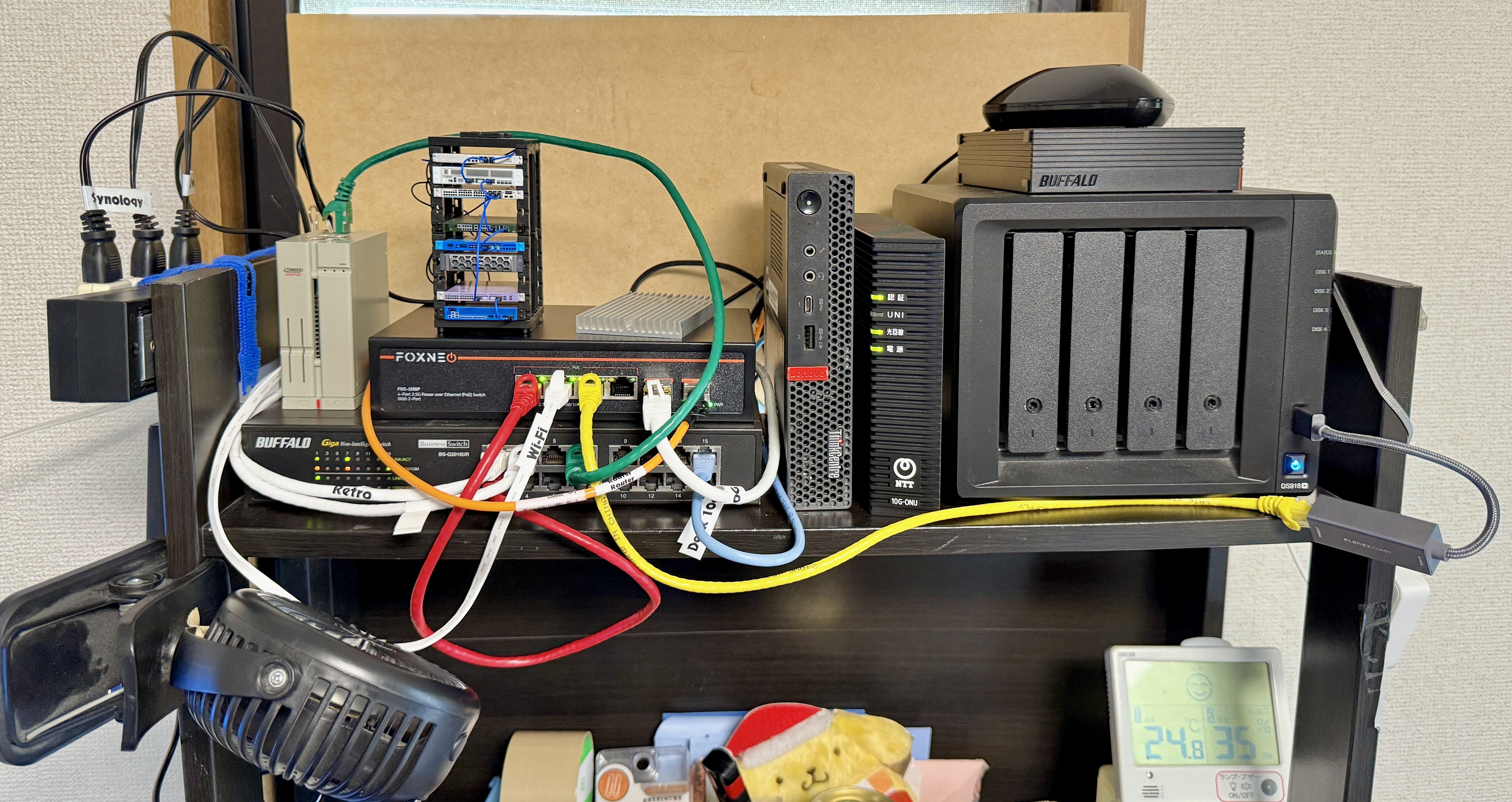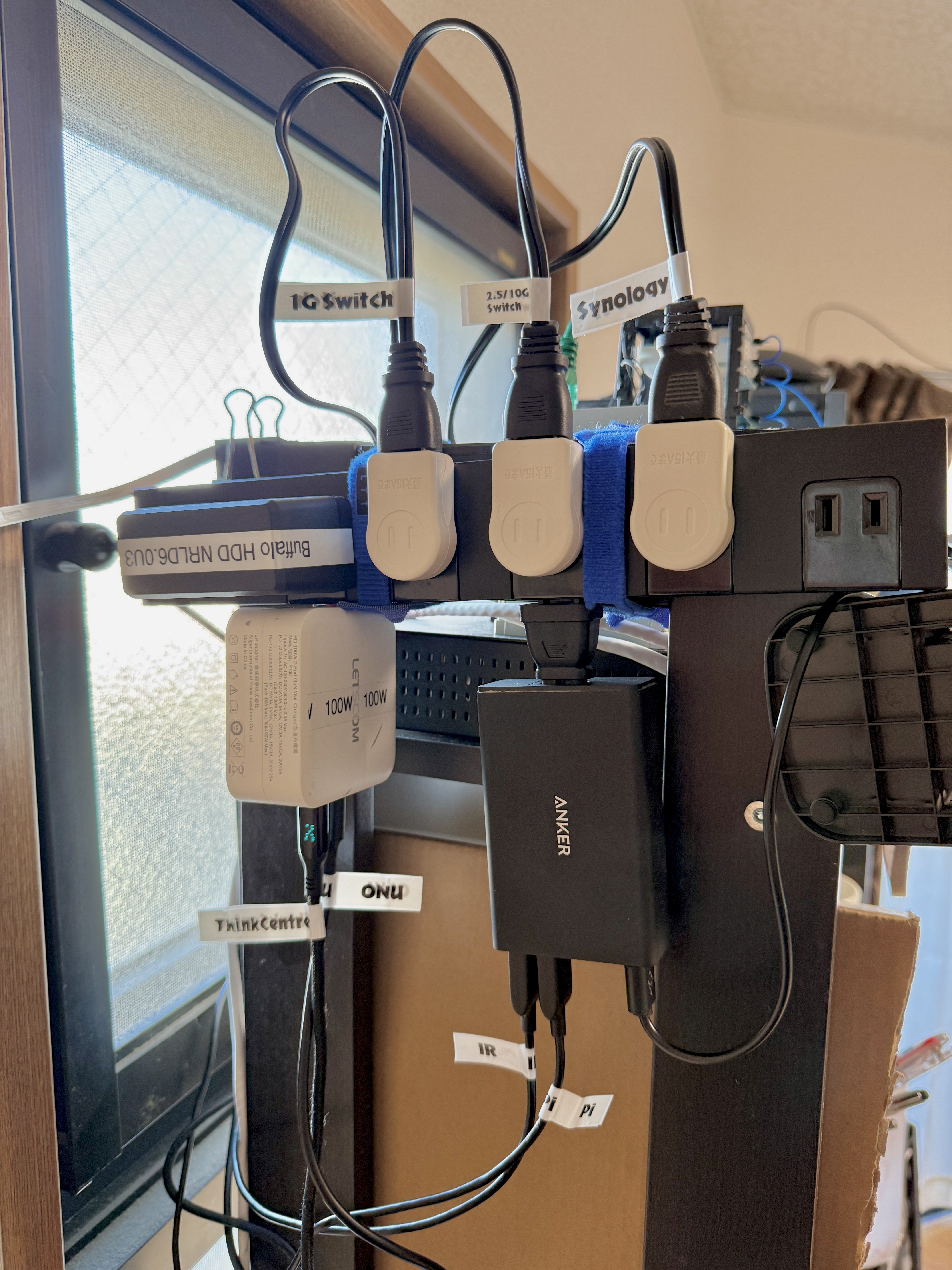It’s from a japanese Gacha machine! https://bitbang.social/@kalleboo/112755170852099746
- 1 Post
- 66 Comments
Precisely, the rear ethernet is 1 Gbit, the USB adapter is 2.5 Gbit!

 14·5 days ago
14·5 days agoI just got 10 Gbit internet last week so I had a chance to tidy everything up. The ThinkCentre is the 10 Gbit router, the Synology actually hosts everything.

Also finally labeled all the mystery cables. Also replaced the proprietary 20V/12V bricks for the ThinkCentre and 10G Fiber ONU with USB-C adapter cables to keep things tidier.


 3·11 months ago
3·11 months agoThe big companies like that get the laptops at cost because they sign up for juicy support contracts, which is where the real money is

 172·11 months ago
172·11 months agoPeople keep buying them and signing up for an ink subscription. If people are that dumb, they’d be insane NOT to milk them for cash

 4·11 months ago
4·11 months agoThis grant was originally not going to even allow satellite providers - the idea was it was going to go to hundreds of small fiber and wireless ISPs who needed the money to build infrastructure to rural areas that is not profitable on the face of it.
A one-time grant like this isn’t going to make or break Starlink - they’re not building anything infrastructure with the money (the satellites burn up in a few years and need to be replaced - are they going to need ongoing grants?), so basically it’s just giving free money to SpaceX. Whereas if the money went to a company building fiber or wireless repeaters that money would pay itself back over and over again and the fees would just pay for maintenance

 33·11 months ago
33·11 months ago"RDOF rules set speeds of 25/3 Mbps as the minimum allowed for broadband service delivered by winners. However, participants were permitted to bid at four different performance tiers: 25/3 Mbps, 50/5 Mbps, 100/20 Mbps and 1 Gbps/500 Mbps"
If SpaceX had bid on a lower tier of service that they were actually capable of delivering, they would have been fine.
This grant was not designed to fund the development of new technology, it was designed to build infrastructure (fiber, 5G, WISPs, etc) and they were originally going to exclude satellites from the bidding completely. The companies who would have used the grant to build fiber or set up point-to-point wireless would have had no problem meeting the requirements since it’s all proven technology.

 10·11 months ago
10·11 months agoI like using wired headphones when I take phone calls. The headset profile that Bluetooth switches to when it needs to activate a microphone sounds like total ass and I have trouble understanding what people say as it is.
Finding a less potato image of this device on Google, the red sockets are not testing sockets but “pin straighteners”

 29·1 year ago
29·1 year agoWhat helps these machines are built-in SSDs that operate at about 2 GB/s. If swapping out 2 GB of background tabs you’re not looking at when you switch to your IDE takes a second, you’re not really going to notice it. Only if you’re actually trying to operate with all the memory at the same time (big Kubernetes test suites or something) is when the swapping becomes noticeable.

 3·1 year ago
3·1 year agoThey sell access to data (i.e., ads) - that is far more lucrative than selling the data itself. Only companies that are bad at tech just sell the data (credit card companies, retail, etc)
Cambridge Analytica was far more stupid - that was them just giving away data for free. Their old Facebook Apps APIs were wide open to collect whatever for free for anyone who would use your app (CA made those “do this fun quiz and invite your friends!” kind of FB games) and the APIs just said “we require you to delete this data when the user is done with the app” with no way to enforce it

 4·1 year ago
4·1 year agoPrivate Equity?
RIP Italians

 11·1 year ago
11·1 year agoOnce Intel gets to 2nm
So in like 10 years from now?

 3·1 year ago
3·1 year agoThe biggest spikes look like the correspond to new year. So my guess is that the spikes are vacations and show the difference between home PC and office PC usage.
You can see the same spikes on e.g. Googles IPv6 chart - when people are away from work IPv6 penetration goes up, when people are at work it goes down.

 51·1 year ago
51·1 year agoSlow charging speeds at home/work are fine, nobody is burning 100% of their range daily on their commute. The people with 200 mile daily commutes are not buying EVs

 21·1 year ago
21·1 year agoBe careful in trying to interpret year over year statistics. Last year was huge for Apple as if you look at Q3 2022 then Apple increased sales 10% while the rest of the PC market dropped a massive 18%.
You’re saying “since switching from x86 to ARM apples sales are down! see it was a bad idea!” but actually they have been way way up and are just finally getting inline with the sales decline the rest of the PC industry has had after the covid work from home rush ended.

 16·1 year ago
16·1 year agothe CPU architecture is not as directly tied to the software as it once was
Yeah it used to be that emulating anything all would be slow as balls. These days, as long as you have a native browser you’re halfway there, then 90% of native software will emulate without the user noticing since it doesn’t need much power at all, and you just need to entice stuff that really needs power (Photoshop etc), half of which is already ARM-ready since it supports Macs.
The big wrench in switching to ARM will be games. Game developers are very stubborn, see how all games stopped working on Mac when Apple dropped 32-bit support, even though no Macs have been 32-bit for a decade.

 3·1 year ago
3·1 year agoHaha that’s hilarious. 87% success rate!! https://web.archive.org/web/20101109032847/http://isthesigningserverdown.com/beta
It’s 6 years old now so I can’t really complain but even new ones don’t come with 2.5Gbe by standard, it seems that should be cheap enough to throw in there by now. At least a lot of the new ones can be upgraded internally to 10 Gbe.